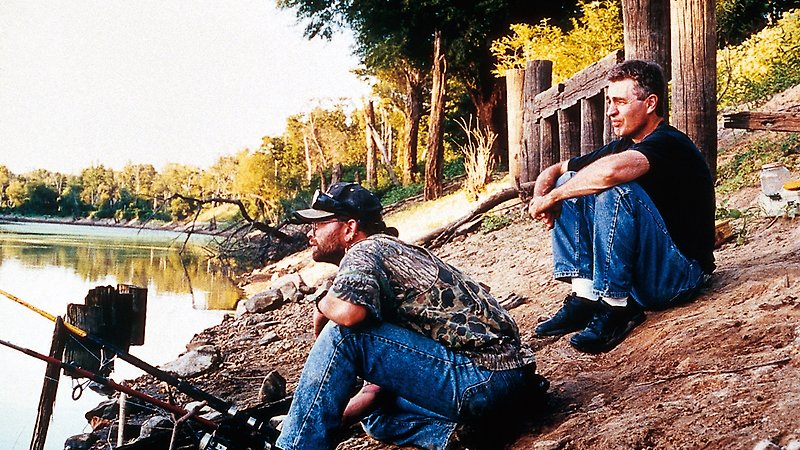
This searching, conflicted portrait of a dangerously troubled young man may turn out to be the year’s most hotly debated documentary.
Screened as part of NZIFF 2003
Stevie 2003
When he was a college student, Steve James played Big Brother, in a mentorship scheme, to Stevie Fielding, a troubled abused child of a long-gone alcoholic father in rural Illinois. In 1995 James, by now a successful documentary filmmaker (Hoop Dreams) revisited Stevie. Maybe there was a film to be made about renewing his acquaintance with the boy who had grown into an aggressive, sociopathic young man, divorced after a five-month marriage to a much-older wife, and in chronic trouble with the law. Two years later James was back again, camera in hand, to find Stevie accused of molesting a little girl (a frame-up by his mother, he claims), and facing prison. Steve James, socially engaged documentary filmmaker, seeks out anyone who might help explain what Stevie has become, but what Stevie wants to know is: will Steve James, Big Brother, bail him out? The filmmaker’s uncertainty about his own double role becomes one of his major subjects.
Stevie is an enthralling movie with a vivid identity crisis. The subject matter would not be out of place on The Jerry Springer Show: it’s trailer trash Gothic – and public confessional – on an epic scale. But Steve James is no ringmaster. He delves into the morass of abuse with insight and compassion – and embarrassment. His narrative intelligence is in constant tension with his queasy awareness that he’s one of a horde of adults who have let dirty, wayward little Stevie down. The redeeming strength James does not advertise so plainly is his rapport with the women in Stevie’s life. We meet the step-grandmother who raised him for a time and never for a moment let him forget that his mother had rejected him. James also gives us a remarkably rounded portrait of the mother, whom Stevie has hated for most of his life. She’s clearly a troubled soul with a hunger for redemption so strong that it would take a hard heart not to be moved by the consoling power of the church in her life. Most memorable of all is Stevie’s remarkable girlfriend, Tonya, a young woman of apparently limited intellectual ability, but with a highly evolved sense of herself. There is also a deeply affecting reunion with the one foster family who ever displayed any comprehension of Stevie’s unruliness. The emotional brew is a rich one and James’ sensitivity to the pain he reveals is unmistakable.
Watching Stevie is an uncomfortably fascinating experience. Steve James’ failure as a social worker is integral to its troubling power. — BG